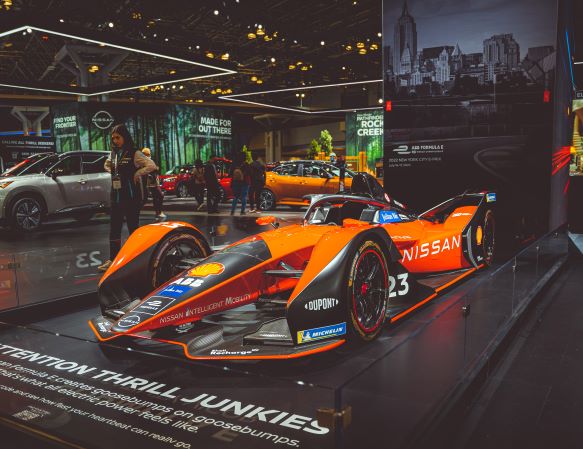Brian McCowan, Zondits staff, 6/27/2022
For proponents of clean energy, the sport of automobile racing has always been a controversial subject. For some, it is a waste of precious energy resources, but others view it as contributing valuable research and development (R&D) for improving the efficiency of automobiles. That discussion has recently taken on a new dimension with the racing of all-electric vehicles. If you are conjuring up visions of Nissan Leafs or even Teslas circling a track, forget it. Formula E involves high-tech, open-wheel cars racing on many of the same famed road circuits visited by Formula 1.
Although it sounds like a cliché, the idea for Formula E was sketched out on a napkin by founders Alejandro Agag and Jean Todt back in 2011 when electric vehicles were still mostly a novelty for early adopters. Since that time, the sport has attracted major sponsors, automobile manufacturers, and talented drivers from the Formula 1 ranks to complete in what many see as the future of auto racing.
ABB is the lead sponsor of the sport. Based in both Sweden and Switzerland, ABB is a leader in electrical technology, including variable frequency drives and more recently electric vehicle (EV) charging systems. “ABB Formula E is a showcase for the world’s most advanced e-mobility technologies, which are helping to drive progress towards a more sustainable future,” states ABB in a race series “Partners” introduction. Other sponsors and factory teams include Mercedes Benz, Jaguar, Porsche, Nissan, and Chinese EV manufacturer NIO.
Technology advancements that are transferrable to passenger EVs include regenerative braking which utilizes the energy from braking to charge the battery bank, lighter batteries with improved charge cycling, more powerful and efficient drive motors, and software/hardware systems that achieve maximum efficiency from the cars. Much of this technology is driven by the Formula E rules and structure that forces drivers to conserve battery power during the race in order to complete the entire race on one charge.
The cars themselves are remarkable feats of engineering, producing over 260kW (equivalent to 350hp) with an additional 100kW available through regenerative braking. Acceleration is 0-100km/hr (0-62 miles/hr) in 2.8 seconds with top speeds reaching 280km/hr (174 miles/hr).
Formula E is not the only racing series that involves EV R&D. Formula 1 racing mandates hybrid powerplants and the drivers judicially use battery boost to gain an advantage. Toyota, for the fifth year in a row, won the 24hrs of Lemans with hybrid-powered cars, besting Porsche, Ferrari, and other teams campaigning cars with 100% internal combustion engines.
Formula E races are regularly broadcast on ESPN and can also be streamed. Schedules and information on the series can be found at these sites:
An interesting article about the history of hybrid cars in auto racing is available here: Motorsport Gallery
